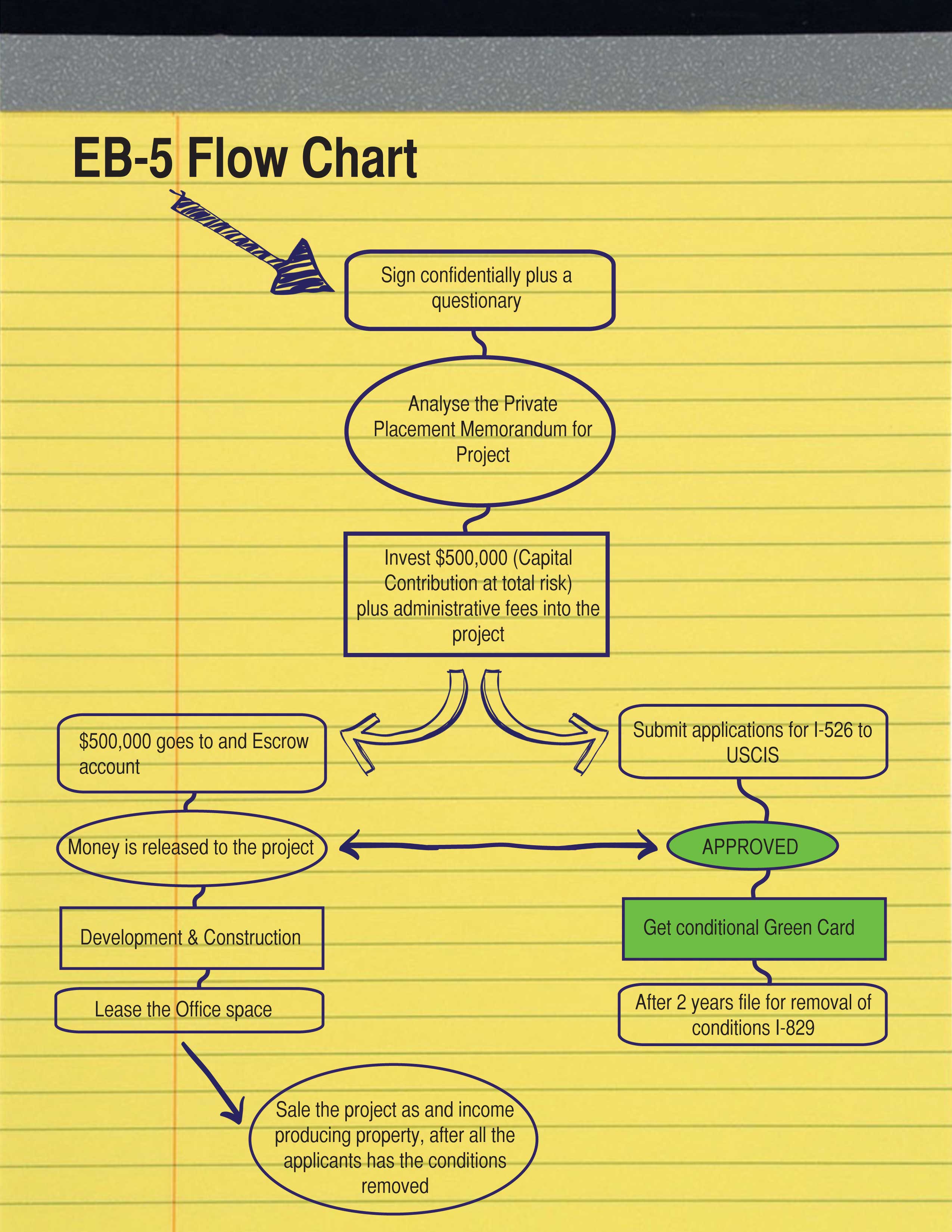Definition and FAQ
What is the EB-5 Investment Visa Program?
The Investment Visa Program takes advantage of the immigrant visa category for alien entrepreneurs known as the EB-5 Immigrant Investor Visa, created by the Immigration Act of 1990. In general terms, the EB-5 program requires an alien to “invest or be actively in the process of investing,” either US$1,000,000 or US$500,000, which is “at risk” in a “new or existing business enterprise” that directly or indirectly results in the creation or preservation of ten full time (at least 35 hours per week) jobs for a two year period. A successful applicant can earn permanent residency for himself/herself, a spouse and children under age 21.
Is EB-5 a truly passive investment?
I want to invest in the USA and get a green card, is the EB5 visa suitable for me?
Will my children be able to remain in school in the United States if I leave the United States?
Yes.
Are any countries excluded from eligibility for the EB-5 Visa program?
What can disqualify us from participating?
What is a Designated Regional Center?
Focuses on a specific geographic area within the United States;
Seeks to promote economic growth through increased export sales, improved regional productivity, creation of new jobs, and increased domestic capital investment. Facilitates the pooling of capital of multiple EB-5 investors
Investors can take credit for jobs created directly as well as indirectly from their investment in the Regional Center. Indirect job creation may be demonstrated using any reasonable approved methodology.
Congress gave the USCIS discretion to give priority to EB-5 applications filed in conjunction with a Regional Center.


